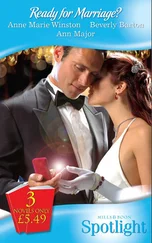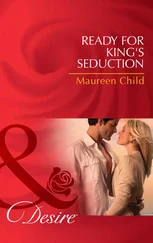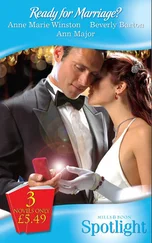Franketienne - Ready to Burst
Здесь есть возможность читать онлайн «Franketienne - Ready to Burst» весь текст электронной книги совершенно бесплатно (целиком полную версию без сокращений). В некоторых случаях можно слушать аудио, скачать через торрент в формате fb2 и присутствует краткое содержание. Год выпуска: 2014, Издательство: Archipelago, Жанр: Современная проза, на английском языке. Описание произведения, (предисловие) а так же отзывы посетителей доступны на портале библиотеки ЛибКат.
- Название:Ready to Burst
- Автор:
- Издательство:Archipelago
- Жанр:
- Год:2014
- ISBN:нет данных
- Рейтинг книги:3 / 5. Голосов: 1
-
Избранное:Добавить в избранное
- Отзывы:
-
Ваша оценка:
- 60
- 1
- 2
- 3
- 4
- 5
Ready to Burst: краткое содержание, описание и аннотация
Предлагаем к чтению аннотацию, описание, краткое содержание или предисловие (зависит от того, что написал сам автор книги «Ready to Burst»). Если вы не нашли необходимую информацию о книге — напишите в комментариях, мы постараемся отыскать её.
Ready to Burst
The New York Times
Ready to Burst — читать онлайн бесплатно полную книгу (весь текст) целиком
Ниже представлен текст книги, разбитый по страницам. Система сохранения места последней прочитанной страницы, позволяет с удобством читать онлайн бесплатно книгу «Ready to Burst», без необходимости каждый раз заново искать на чём Вы остановились. Поставьте закладку, и сможете в любой момент перейти на страницу, на которой закончили чтение.
Интервал:
Закладка:
— If that’s the case, what’s there to do? I’d say you should stop writing. You might as well break that useless pen in two and then tear up these sheets of paper before throwing them in the fire.
— What’s left is waiting for the end; the death throes can go on for some time. In the interval, literature will accept its place as underling. And we can still slow down its ultimate end by infusing this old, ailing organism with a bit of new blood. With something enriched that has been extracted from the drama of its own dying, which is also that of men — for whom the earth is no longer enough. The planet has become a straitjacket for man’s respiration. He needs wings to rise up. To conquer infinite illuminated spaces. But literature, that decrepit old man, loses its breath in the course of such vertiginous ascension. And free falls terrify it. In the meantime, cinema, marvelously new, served up by the television and by communication satellites, quickly travels along the new itinerary of cosmic waves. That’s why, my friend, to produce a literary work that pays close attention to the aesthetic becomes so difficult. Originality, authenticity — these are the stumbling block and the challenge. We must create, more now than before. As we wait for the certain turn toward death. The fascinating era of interstellar acrobatics.
Raynand is spellbound by Paulin’s words. After a few moments of contemplation, he lights a cigarette.
— Tell me, Paulin, how far along are you with your novel?
— The first chapters are already written. I’m at a crucial point, and I’m finding it very difficult to move forward. It happens at times that I end up spending hours doing battle with a single blank page. A cruel sheet of paper that refuses to fill up. That stubbornly refuses to bear the scratch marks of my pen or the strikes of my typewriter. A resistance that undermines my spirit. Often reduces me to tears. Because in such moments, neither semantics nor the dictionary, nor grammar, nor memories of past reading are of any help. And so, I give it up. I get into my bed and tell myself that literature is a curse. The surest path to my self-destruction. To suicide. But then the next day, I wake up full of enthusiasm. And I go back to writing, like a rebel full of rage. A masochist full of vices. An incorrigible megalomaniac. A zo-bouke-chen — irredeemably shameless!
— So what is it that holds you back?
— It isn’t that I don’t know what to say. It’s the way of saying it that torments me. The obsession with language in the crucible of solitude. Writing is the stumbling block. There are moments when I feel the weight of several tons pressing down on my shoulders. And then I lose my breath. And the clutch slips. I think that’s where the essential difference lies between painting and music, on the one hand, and literature, on the other. The basic instruments used by the painter and the musician to communicate their ideas — that is, colors and notes — are external and allow for easier manipulation. Whereas the writer has no direct grasp of words, which are completely internal. The painter has before him his palette and the whole range of colors. The musician, his instrument, and the panoply of scales and registers. As for the writer, he must constantly risk an incursion into the interior volcano, in order to extract, burned by lava, even the simplest word.
— I think I understand a little. So, Paulin, what’s the subject of your novel? What’s the title?
— I haven’t started worrying about the title yet. That will come, I’m sure. For the time being, I’m sorting out the structure of the chapters.
— But what are you going to talk about? You must have a story to develop.
— Not one I have the least idea about. Look, I don’t want to write a narrative novel. Or a story that goes from one end of a straight line to the other.
— If I understand what you’re planning, you’d like to try out the experiment André Gide conducted in The Counterfeiters ?
— Not exactly … More like expand it. Gide composed his novel en abyme . That, of course, already marked some measure of progress in the construction of the novel as a genre.
— And what do you plan to do?
— The novel is a vision of life. And as far as I know, life isn’t a segment. It isn’t a vector. Nor is it a simple curve. It’s a spiral in motion. It opens and closes in irregular helices. It becomes a question of surprising at the right moment a few rings of the spiral. So I’m constructing my novel in a spiral, with diverse situations traversed by the problematic of the human, and held in awkward positions. And the elastic turns of the spiral, embracing beings and things in its elliptical and circular fragments, defining the movements of life. This is what I’m using the neologism Spiralism to describe.
— Okay. Still, you’re not going to make me believe you’re writing this novel without even the slightest idea of where it’s going.
— I don’t have even the slightest idea. No fixed notion should hold back the breath of a work that reproduces the accelerations and the imbalanced spasms of life. I take the pulse of the spiral and inscribe it in graphs and charts, from the very life of writing. It’s a pluridimensionality at the level of words — words functioning as particles of sonoric energy in motion.
— Well, if that’s the case, your novel seems to be based on pretty expansive foundations. Which puts an extremely vast area of exploration at your disposal, I suppose. An immense field you can draw from at will.
— Not exactly. To say that I’m developing the theme of bankruptcy would be inexact. Rather, I suggest an ambience of failure. Writing a thermometer-novel capable of indicating the temperature of fictional landscapes. Making it so that the reader feels the climactic and spatio-temporal variations.
— I fear, Paulin, that you’re going about it all wrong. That you’re following the wrong path. That the public won’t understand.
— The public will understand. In fact, that’s who I’m writing the last chapter for. Does one have to be a genius to know if the weather is good or bad, if it’s night or day, if it’s cold or hot outside? Everyone knows, with no fear of getting it wrong, when it’s raining and when it’s sunny. That’s why, theoretically, I won’t explain anything to my reader. He’ll make out the landscape by the ambient temperature that touches his senses directly. He’ll play along from the start. What’s more, I’d like the dialogue between characters in the Spiralist novel to recall that of the theater, and for it to be situated right at the limits of poetry.
Raynand realizes this is one of the rare moments in his life where he’s hearing someone speaking with conviction. Paulin’s voice resonates more seriously than usual. It was as if the room were being lit up by his presence. By his words. As if all the light were surging up from the very depths of his wild eyes.
— What obsesses me the most is the idea of escaping from the bunker that imprisons every one of us. Of conveying who I am by deciphering the hieroglyphics that hamper my vision. The enigmas that exasperate me. By managing to trigger something in the reader’s thoughts. The manipulation through writing that would create a communicative field and force people to move outside of stereotypes and normalcy.
— For that, Paulin, you’ll need an accessible language.
— Not necessarily accessible from the start. I present my language in the dizzying circles of a fabulous merry-go-round. Magic carousel that sometimes spins against the wind. It’s a moving polyhedral mass. Changeable. I loathe the Procrustean bed.
— Okay, so you already must have conducted some linguistic experiments, since you seem, as far as I can tell, to accord great importance to writing. To the formal.
Читать дальшеИнтервал:
Закладка:
Похожие книги на «Ready to Burst»
Представляем Вашему вниманию похожие книги на «Ready to Burst» списком для выбора. Мы отобрали схожую по названию и смыслу литературу в надежде предоставить читателям больше вариантов отыскать новые, интересные, ещё непрочитанные произведения.
Обсуждение, отзывы о книге «Ready to Burst» и просто собственные мнения читателей. Оставьте ваши комментарии, напишите, что Вы думаете о произведении, его смысле или главных героях. Укажите что конкретно понравилось, а что нет, и почему Вы так считаете.
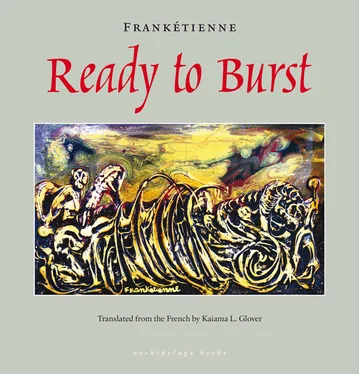
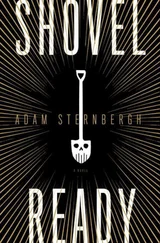
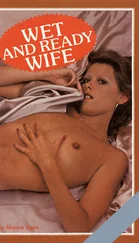
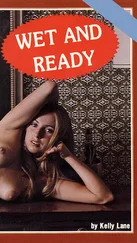
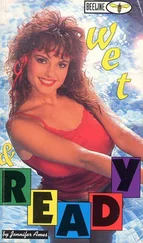
![Эрнест Клайн - Ready Player Two [calibre]](/books/438636/ernest-klajn-ready-player-two-calibre-thumb.webp)

